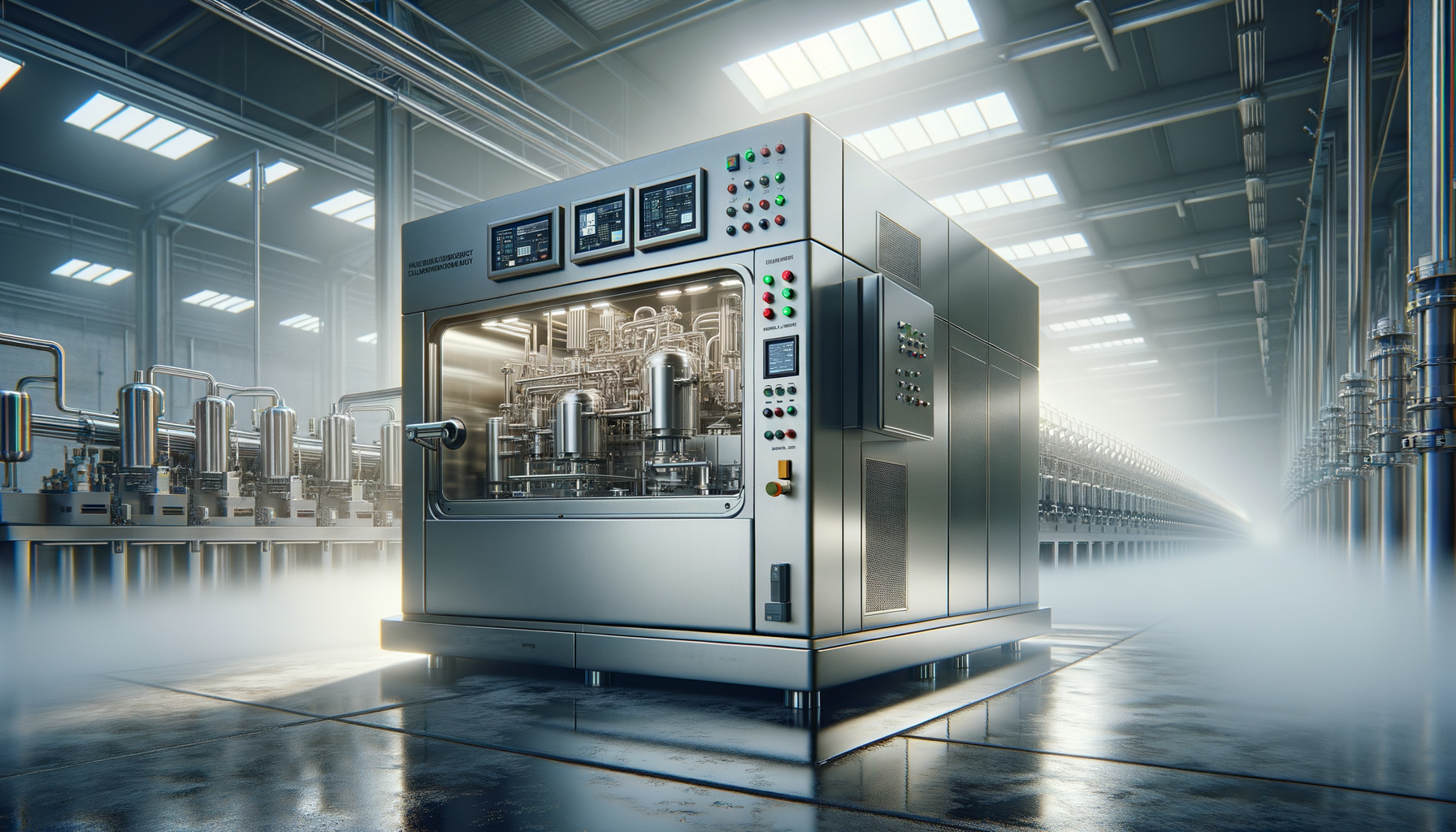The Evolution of Ice Cream Makers
Ice cream makers have come a long way since their inception. From hand-cranked models to advanced automated systems, the evolution of ice cream makers reflects the broader technological advancements in the food industry. Initially, ice cream was a luxury item, made manually with ice and salt to freeze the mixture. This process was labor-intensive and time-consuming.
With the advent of electricity and refrigeration, ice cream production became more accessible and efficient. Modern ice cream makers now incorporate digital interfaces, allowing precise control over temperature and mixing speeds. This precision ensures a consistently smooth texture and flavor, catering to both commercial and home-based ice cream enthusiasts.
Today, industrial ice cream makers are equipped with cutting-edge technology, such as programmable settings and self-cleaning features. These innovations not only enhance the quality of the ice cream but also streamline the production process, making it more sustainable and cost-effective.
Key Features of Modern Ice Cream Makers
Modern ice cream makers are designed with a range of features that cater to different needs. One of the most significant advancements is the incorporation of smart technology, which allows for remote operation and monitoring. This feature is especially beneficial for large-scale producers who need to maintain consistent quality across batches.
Another critical feature is the ability to customize the texture and consistency of the ice cream. Many machines offer settings for different types of ice cream, gelato, and sorbet, allowing producers to diversify their product offerings. Additionally, automatic timers and alerts ensure that the ice cream is churned to perfection without constant supervision.
Some models also include energy-efficient components, reducing the environmental impact of production. These eco-friendly machines often come with energy-saving modes and are built with recyclable materials, aligning with the growing demand for sustainable manufacturing practices.
Impact on the Ice Cream Industry
The introduction of advanced ice cream makers has significantly impacted the industry. For one, it has lowered the barriers to entry for small businesses and startups, enabling them to produce high-quality products without substantial initial investments. This democratization of ice cream production has led to a more diverse market with a wider range of flavors and styles.
Moreover, the efficiency of modern machines has increased production capacity, allowing businesses to meet the growing consumer demand for ice cream. This is particularly important in regions where ice cream consumption is on the rise, driven by warmer climates and changing dietary habits.
The ability to produce consistent quality at scale has also opened up new opportunities for export, as international markets seek out premium ice cream products. This global reach has encouraged innovation in flavor development, with producers experimenting with local ingredients to create unique offerings.
Challenges and Considerations
Despite the many advantages of modern ice cream makers, there are several challenges and considerations to keep in mind. One of the primary concerns is the initial cost of acquiring advanced machinery, which can be prohibitive for some small businesses. However, the long-term savings in labor and efficiency often justify the investment.
Another consideration is the maintenance and upkeep of these machines. Regular servicing is essential to ensure optimal performance and longevity. Businesses must also train their staff to operate and troubleshoot the equipment effectively, which can be a significant undertaking in terms of time and resources.
Lastly, while the technology offers numerous benefits, it also requires a reliable power supply and infrastructure, which may not be available in all regions. This limitation can hinder the adoption of advanced ice cream makers in certain markets.
The Future of Ice Cream Making
The future of ice cream making looks promising, with ongoing advancements in technology and sustainability. As consumer preferences continue to evolve, there is a growing demand for healthier and more diverse ice cream options. This trend is likely to drive further innovation in ice cream maker design, focusing on flexibility and customization.
Emerging technologies such as artificial intelligence and the Internet of Things (IoT) are expected to play a significant role in the next generation of ice cream makers. These technologies could enable machines to learn and adapt to consumer preferences, offering personalized ice cream experiences.
Furthermore, as sustainability becomes a priority, future ice cream makers are likely to incorporate even more eco-friendly features, such as solar power integration and biodegradable materials. These advancements will not only enhance the production process but also align with the environmental values of modern consumers.




Leave a Reply